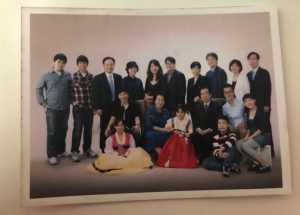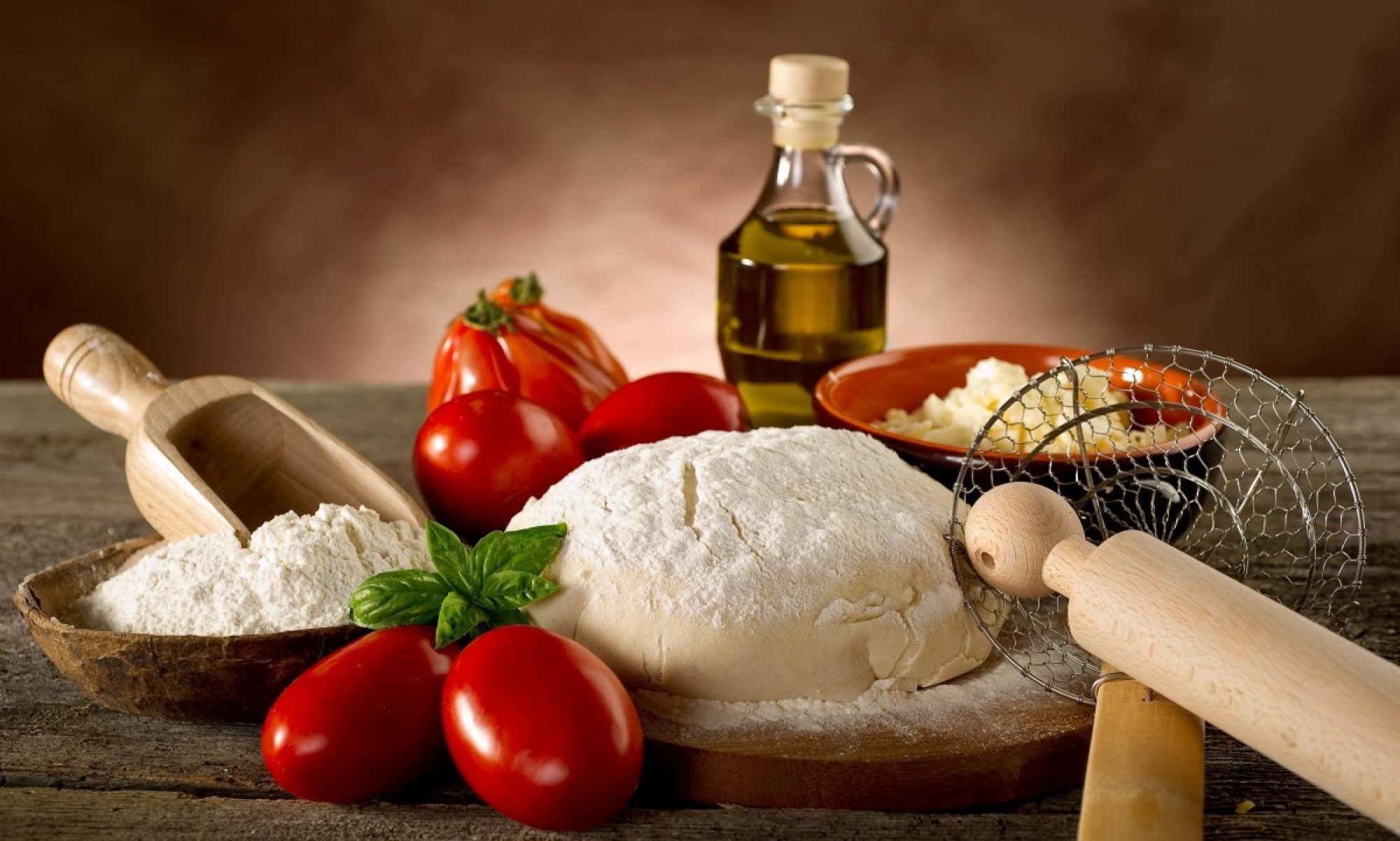CHN 370W
Dr. Hong Li
Dr. Christine Ristaino
Yujin Choi
Mandooguk
The dish mandooguk has always held a special place in my heart. Mandoo, means dumpling in korean, and guk, means stew, which makes up mandoo-guk, a dumpling soup. Specifically, it is a Korean broth dish eaten during the celebration of Lunar New Year’s. In addition to the dumplings, the soup contains thinly sliced rice cakes called “tteok,” as well as marinated beef, cooked eggs, and pepper for seasoning.
Image of Manduguk (https://tarasmulticulturaltable.com/duk-mandu-guk-korean-rice-cake-and-dumpling-soup-and-lunar-new-year-round-up/)

To talk a bit about the historical and cultural background of mandooguk, the exact origin of eating mandooguk is unknown. The tteok-guk, however, can be found in the 19th century Korean customs book called Dogguksesigi. Tteok-guk is the same mandooguk dish, just without the dumplings. The customs book states that tteok-guk uses beef or pheasant as its main brother and pepper for seasoning. Culturally, tteok-guk and mandooguk are consumed on Seollal, the Korean Lunar New Year’s day, as a symbolic meal. The whiteness of the rice cake in the mandooguk symbolizes purity and cleanliness, a perfect representation of a fresh start in the New Year’s. The oval shape of the rice cake, represents ancient Korean coin currency, and symbolizes prosperity. It is a tradition that every individual who eats a bowl of tteok-guk gains a year of age. Children, hence, are usually eager to have extra servings, in hopes of becoming older quickly. I remember, however, as a kid I used to dislike eating the tteok, so my mom would always lightly threaten me that I will stay a kid forever while my brother grows until I ate my tteok.
In our family, we always make the mandoos, the dumplings, ourselves for the mandooguk. The night before Lunar New Year’s, our whole extended family of 20 would get together at my grandma’s house and sit around the dining table making dumplings with our bare hands. When my brother and I were just kids, we would compete with our cousins on who could make the biggest dumpling. After several attempts at wrapping the poor thin wrapper around fist-size insides and watching the insides peak out everywhere, we would get scolded by our oldest aunt Tae for wasting her time. We children would then scramble off and hide in our grandma’s bedroom till we slowly came out one by one and started helping the adults, this time for real. My grandmother would also always make her own special spicy sauce that was incorporated in the mandoo each year. I have searched my whole life trying to find a taste similar to it but was unsuccessful. The only time when I could taste such authentic seasoning was Lunar New Year’s at my grandma’s. Our own little traditions make this dish more special and significant in our family.
I love even just thinking about this dish because it always reminds me of home and family. Our special tradition of homemade dumplings and the memories that come with it are something I can never forget. Lunar New Year’s is the only time in the whole where all my extended family come together from faraway places and produce something in teamwork. Even as adults, my cousins and I still sit around the table cooking and laughing at the old times. The fact that this time only comes once a year makes every moment with my family memorable. This mandooguk, in my opinion, also symbolizes family. One would expect such a traditional New Year’s dish to be present in the New Year’s; however, the dish would not come forth without any effort. It takes us around three to four hours to make batches that could fill 20 people. Likewise, one would expect family to be present at a traditional gathering, but only if the family makes effort to come together. It always brightens my day to think that every single member of our family made effort to be together, travelling up to three to four hours to arrive at my grandma’s. I long for the New Year’s every year, not just for the food, but also for the family. Unfortunately, as I entered college, I am unable to make it to the Lunar Year’s gatherings at my grandma’s, because it usually falls on mid-February, when I am already back in town for the second semester. Around every Lunar New Year’s, I terribly miss eating the mandooguk and being with my family; they are always thoughtful enough to Face-Time me during the day and say hello. But I know it won’t be the same till I am back and actually there.
Image of Family

Mandoogook Recipe
(https://www.maangchi.com/recipe/mandu-guk)
- ½ pound beef brisket (about 230 grams), cut into small pieces
- 8 cups of water
- 3 garlic cloves, minced
- 2 green onions, sliced (or ½ cup sliced large green onion (dae-pa)
- 14 homemade shrimp & Asian chive dumplings
- 1 tablespoon fish sauce
- 1 egg, beaten in a small bowl
- 1 teaspoon sesame oil
- ½ teaspoon ground black pepper
Directions
- Bring 8 cups of water to a boil over medium-high heat.
- Add brisket and garlic to the boiling water. Cover and turn the heat down to medium.
- Boil for 30 minutes. Taste a piece of brisket to check if it’s tender or not. If it’s still a little tough, add more water and cook longer, until the beef turns tender.
- Add 14 dumplings and turn up the heat to medium-high. Cook until all the dumplings are floating to the surface and have turned translucent. If you use freshly made dumplings, it will take about 7 minutes, but if you use frozen dumplings straight out of the freezer, it will take longer, between 10 to 12 minutes.
- Add fish sauce and green onion, stir it gently and let it cook for 1 minute.
- Pour the beaten egg over top of the soup and let it cook for about 20 seconds. Stir it gently.
- Add sesame oil and ground black pepper.
- Remove from the heat and serve right away with kimchi and a few more side dishes.

Hi, Yujin, this is such a thoughtful essay on mandooguk. Thank you for sharing your favorite dish with us. I can well understand why you would attach such importance to the dish. I feel sorry that you have missed a few Lunar New Year celebrations due to the semester schedules. If it makes you feel any better, you are not alone; millions of East Asian students who enroll in American universities have to stay away from their family during Lunar New Year (sometimes, when we’re lucky enough, we might get a “snow day” on Lunar New Year’s Day–you’ll know what I mean when it happens). I enjoyed reading about your research on mandooguk, which I find quite informative. I’m convinced of your reflection on mandooguk as symbolic of your family. Have you tried the Korean restaurants in Atlanta? Any luck finding an authentic mandooguk dish? Have you tried making one yourself around Lunar New Year’s? Do you believe mandooguk would continue to mean so much to you? How has it impacted you over the years–in another word, do you believe you would be who you are without it? Is it replaceable? The other area I hope you could work on for future essays is better proofreading–I’ve noticed a few stylistic errors–try to be more careful next time.